#okechukwu nzelu
Text

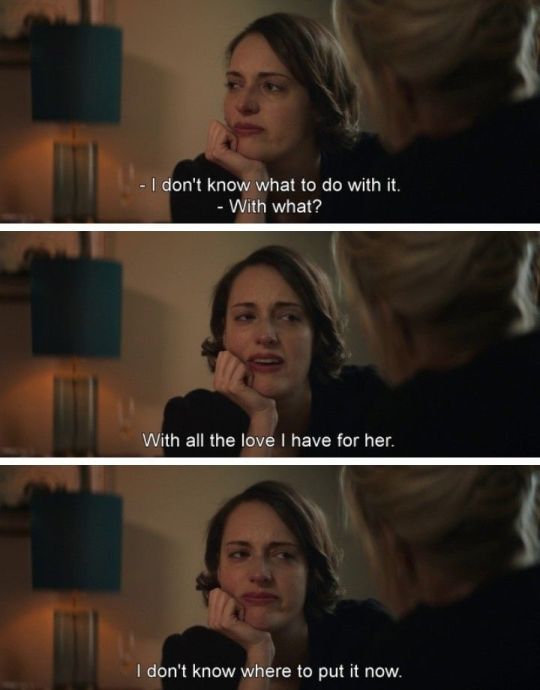
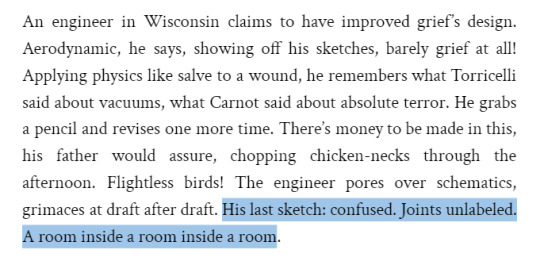
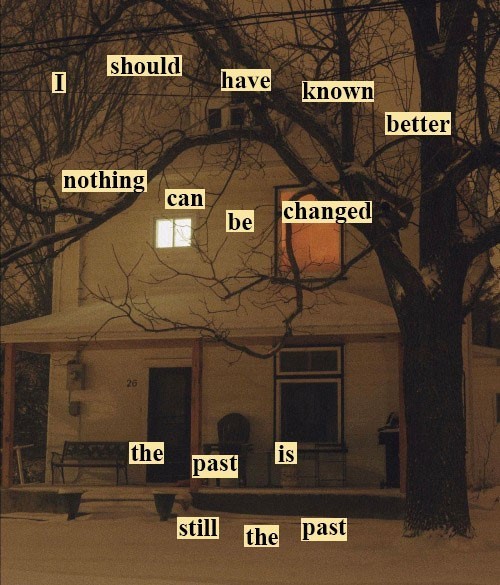
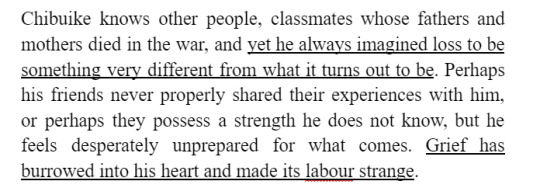

you are the grief i remember you as
fortesa latifi // fleabag // j. estanislao lopez // @promqueendyke // okechukwu nzelu // glennon doyle melton.
#poetry#quotes#web weaving#webweaving#.w#words#excerpts#on love#on grief#fortesa latifi#fleabag#j. estanislao lopez#okechukwu nzelu#glennon doyle melton
1K notes
·
View notes
Text

okechukwu nzelu here again now
kofi
158 notes
·
View notes
Text


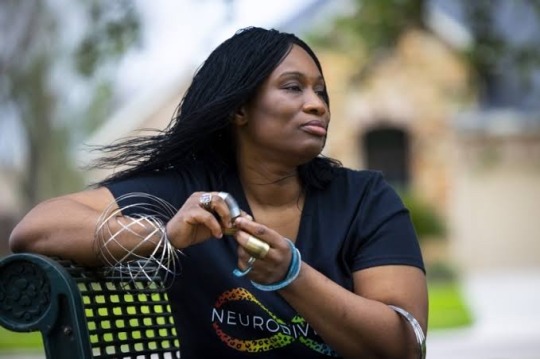
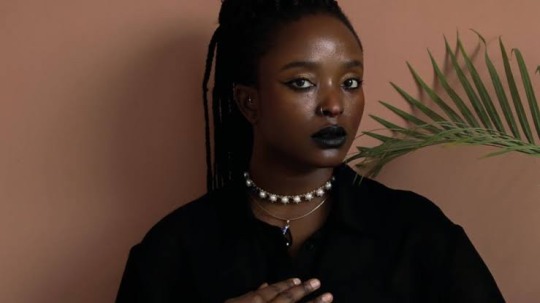
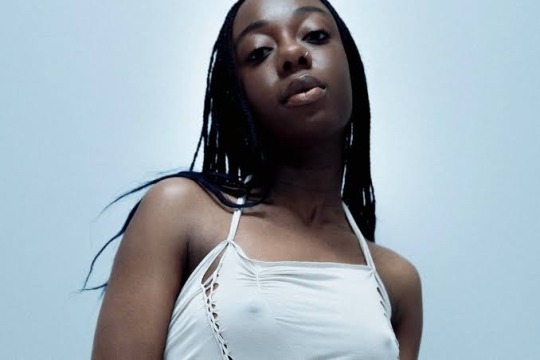


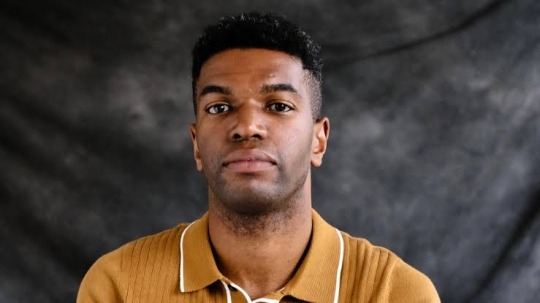
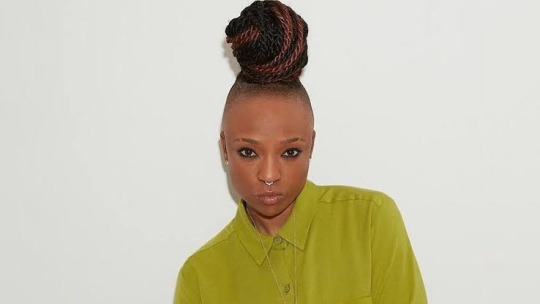

LGBTQ and Nigerian
Ceechynaa
Ayo Edebiri
Morénike Giwa Onaiwu
Eloghosa Osunde
Debby Friday
Noni Salma
Kai Isaiah Jamal
Okechukwu Nzelu
Nneka Onuorah
Cynthia Erivo
#lgbtq in africa#nigeria#cynthia erivo#nneka onuorah#okechukwu nzelu#kai isaiah jamal#kai-isaiah jamal#noni salma#debby friday#eloghosa osunde#morenike giwa onaiwu#morénike giwa onaiwu#ayo edebiri#ceechynaa
15 notes
·
View notes
Text
Book Digest: Beata Umubyeyi Mairesse, Ayanna Lloyd Banwo, Jessemusse Cacinda, Okechukwu Nzelu
Book Digest: Beata Umubyeyi Mairesse, Ayanna Lloyd Banwo, Jessemusse Cacinda, Okechukwu Nzelu
We wrap up book news for our readers in our regular Book Digest segment with books from Beata Umubyeyi Mairesse, Ayanna Lloyd Banwo, Jessemusse Cacinda, and Okechukwu Nzelu.
Consolée by Beata Umubyeyi Mairesse
Publisher: LITTERATURE FRAPublication Date: August 17, 2022Genre: Literary fictionLanguage: FrenchWhere to find it: Coming soon
Beata Umubyeyi Mairesse
Beata Umubyeyi Mairesse.…

View On WordPress
0 notes
Text
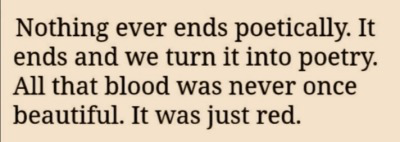








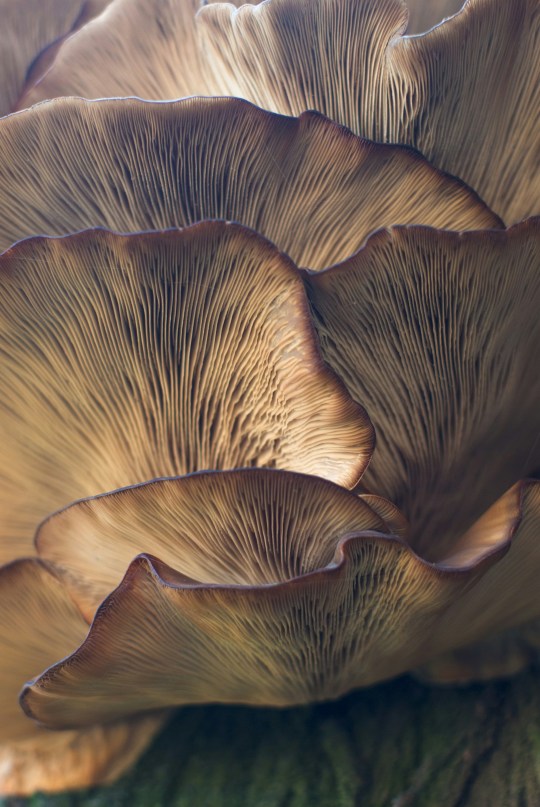


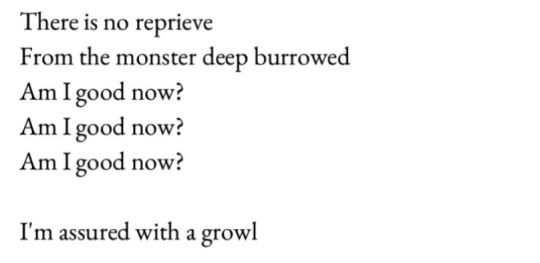

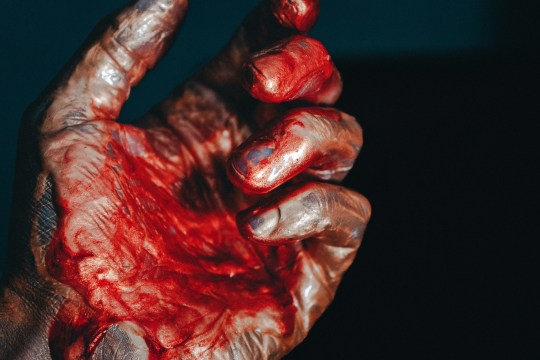



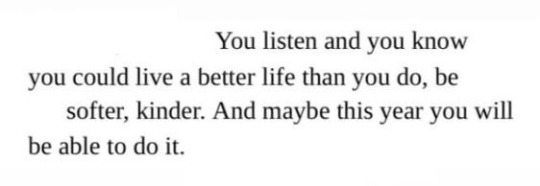
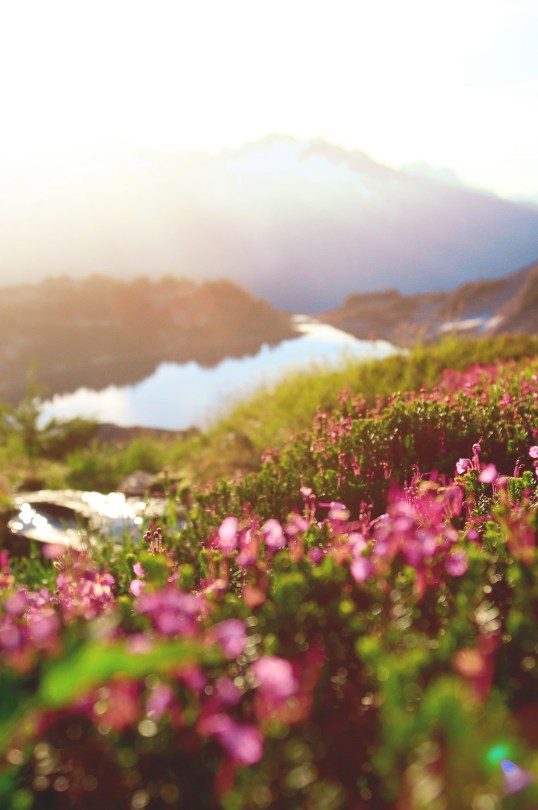
Kait Rokowsky || Mary Shelley, Frankenstein || @hopepunk-humanity || Jenny Slate, Little Weirds || Intricate Explorer || Melissa Broder, Problem Area || Kerri Maniscalco, Kingdom of the Wicked || Louise Eldritch, The King of the Owls || Stephanie Foo, What My Bones Know || Damir Omerović || David Leviathan, How They Met and Other Stories || Ariana Reines, The Cow || Anaís C., Am I Good? || Okechukwu Nzelu, Here Again Now || Max Muselmann || Fernando Pessoa, I See Boats Moving || Mary Maclane, I Await the Devil's Coming || Jhumpa Lahiri, Whereabouts || Mary Oliver, Spring || Jordan Steranka
Tathlyn Auvrynval: On Endurance, Defending, and Being Made A Weapon
#long post#web weaving#oc: Tathlyn#not gonna lie i saw haarleps posting abt web weaving and it made me wanna try#also i should post about tathlyn more probably#userhaarleps#did u know his name means midnight assassin#there u go there's a fun fact
736 notes
·
View notes
Photo


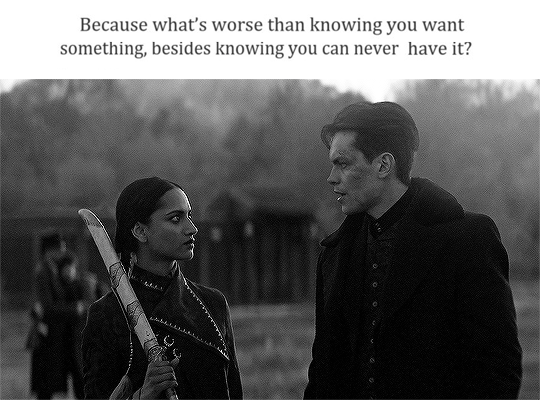
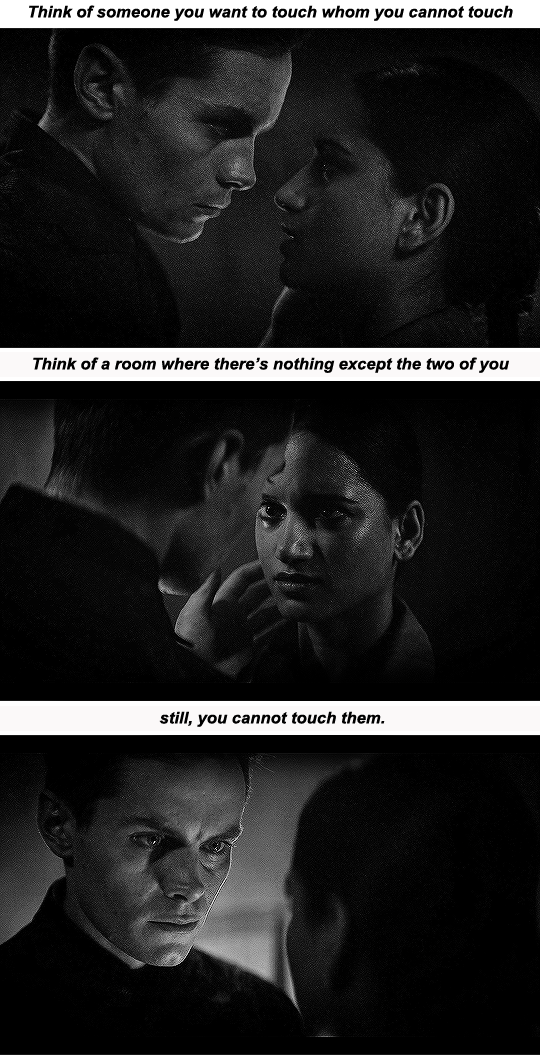

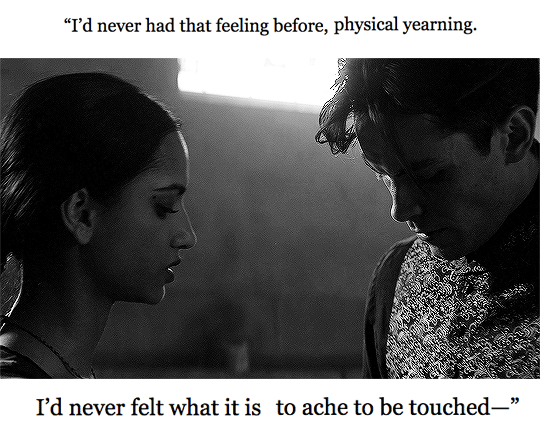


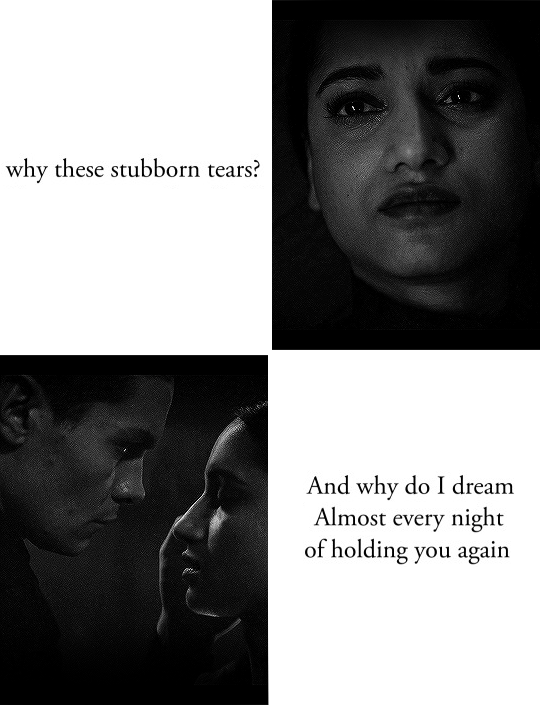

Kanej Week 2023 | Day 2 | Favorite quotes
A Simple Woman - Chelsea Hodson // F. Scott Fitzgerald, The Great Gatsby // Fish in Exile, Vi Khi Nao // okechukwu nzelu here again now // Taylor Jenkins Reid, The Seven Husbands of Evelyn Hugo // sappho // susan sontag as consciousness is harnessed to the flesh: journals and longings // J. D Mcclatchy, from Late Night Ode //
#kanej#shadowandboneedit#socdaily#shadowandbonesource#kanejedit#kanejweek#kaz brekker#inej ghafa#sabedit#kazbrekkeredit#inejghafaedit#six of crows#freddy carter#amita suman#gif#*
1K notes
·
View notes
Text

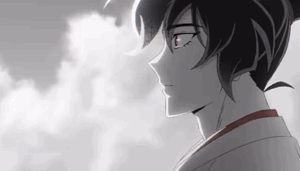
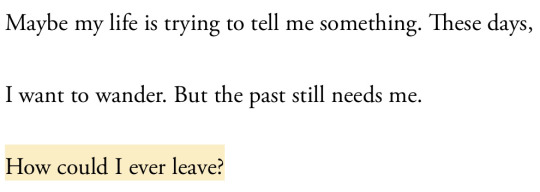


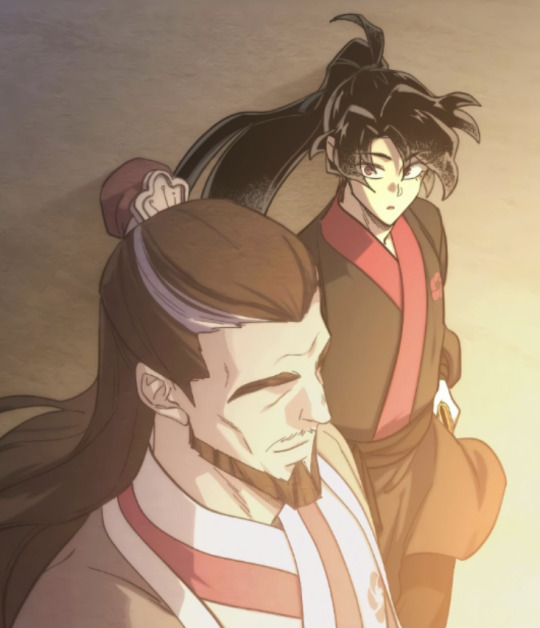
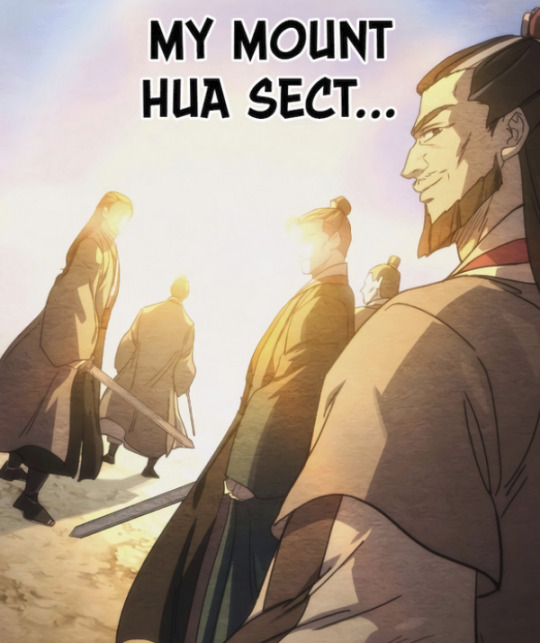
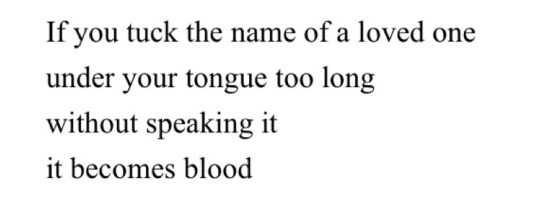


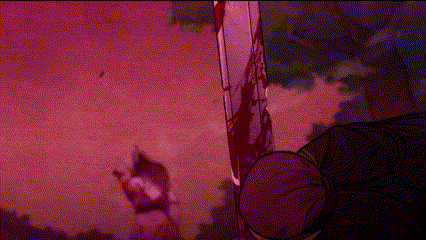

okechukwu nzelu, here again now / hua xi, the past still needs me / @.robertszombie / ocean vuong, time is a mother / naomi shihab nye, fuel: poems; hidden / kaveh akbar, thirstiness is not equal division / david foster wallace / unknown
#OBLIGATORY WEB WEAVE sorry guys i couldnt wait for the anime..shitty gifs from the amv osts instead#rotmhs#return of the blossoming blade#return of the mount hua sect#rotbb#화산귀환#web weaving#web weave#poetry#a little on the nose but watever.. too lazy to fix the formatting or find other excerpts
44 notes
·
View notes
Note
hey, what poem did you use for hobie's face in kaleidoscope crush? (actually, if it's not too much to ask, what poems did you use for the entire piece? your art looks fantastic) :)
thank u so much! i’ll do my best to list em. they should be in order from bottom left, around the character, to bottom right lol
//
from blossoms by li-young lee
saying your names by richard siken
only ever yours by louise o’neill
the second coming by dante émile
//
famous quote by farouq jwaideh (i think)
transformation and transcendence by emily rapp
little dog’s rhapsody in the night by mary oliver
abundance (after mary oliver) by amy schmidt
a moveable feast by ernest hemingway
letters to véra from vladimir nabokov
on a train by wendy cope
i have dreamed of you so much by robert desnos
//
valentine weather by edwin morgan
from my favorite love songs by oozins
tiny beautiful things: advice on love and life from dear sugar by cheryl strayed
for m by mikko harvey
did you know that there’s a tunnel under ocean boulevard by lana del rey
the shortest and sweetest of songs by george macdonald
persephone to hades by nikita gill
the riot act
ordinary things by ryebreadgf
comme des garçons: poem denim jeans by junya watanabe
line from disco elysium
//
from these violent delights by micah nemerever
other lives and dimensions and finally a love poem by bob hicok
coffee and cigarettes by sade andria zabala
letters to milena from franz kafka
drunk confessions by spencer thomas
here again now by okechukwu nzelu
letters to caitlin by dylan thomas
desperation sits heavy on my tongue by tullipsink
i am praying again, awesome one by rainer rilke
i hid my love by john clare
//
and lastly, the one everybody goes wild for:
how will you/have you prepare(d) for your death? by chen chen
#inbox love#poetry#web weaving#sort of#if i didnt list it either i couldnt find it or i wrote it myself lol#should be near complete though!!#oh poetry my love. what would i do without you#thank u thank u thank u!! i’m glad its a hit <3
29 notes
·
View notes
Text
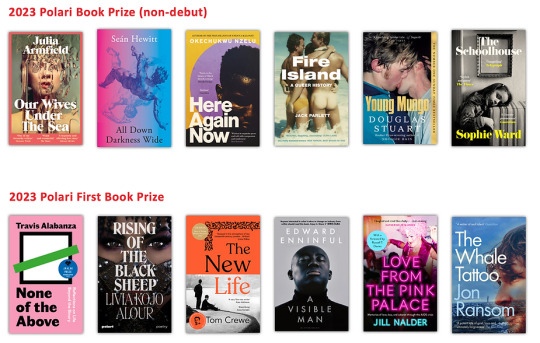
2023 POLARI PRIZE SHORTLISTS CELEBRATE QUEER STORIES THAT “ENTERTAIN, ENRICH AND INSPIRE”
Memoir, non-fiction, and critically acclaimed literary fiction from a mixture of independent presses and larger publishers dominate the dynamic shortlists for this year’s Polari Prize and Polari First Book Prize, the UK’s only dedicated awards for LGBTQ+ literature.
“The quality of long-listed titles this year was so exceptionally high, a number of much-loved titles didn’t make the shortlists” said Paul Burston, founder of the prizes. “Taken together, this year’s shortlists are a powerful testament to the quality and diversity of LGBTQ+ writing in the UK and Ireland today. From dazzling debuts to writers delivering on their earlier promise and really upping their game, these are books to entertain, enrich and inspire.”
Powerful stories of resilience and resistance are the focus of this year’s Polari First Book Prize. None
of the Above by Travis Alabanza (Canongate) is an electric memoir exploring life outside the gender boundaries imposed on us by society. Edward Enninful’s A Visible Man (Bloomsbury) also makes
the list, detailing how the man behind British Vogue has built an extraordinary life; more memoir makes an appearance with It’s A Sin’s Jill Nader and her heartbreaking and eye-opening memoir, Love from the Pink Palace (Wildfire). Fiction titles spotlighted in this category are Jon Ransom’s complex and transporting The Whale Tattoo (Muswell Press) and Tom Crewe’s historical debut novel, The New Life (Chatto & Windus). Rounding up the Polari First Book Prize is Livia Kojo Alour with Rising of the Black Sheep, the only poetry title in the shortlists.
Poet Sophia Blackwell, Polari First Book Prize judge, said:
“The shortlist is full of fearless, moving and original stories. Full of insights about how the authors came to occupy their particular places in the world, they also set out hopeful, ambitious visions for the future.”
Rachel Holmes, Polari First Book Prize judge, said: “Look no further for this year’s quintessential queer bookshelf to illuminate and inspire the approaching autumn evenings, winter weekends and festive season. There’s a beautiful, brilliant read here for all the queer family. Comfortably encompassing diverse genres and multiple points of view, fledgling emerging talent and celebrated household names, this year’s shortlist bravely re-empowers the past, interprets the present, and boldly imagines the future.”
Adam Zmith, Polari First Book Prize judge, said: “The titles on the shortlist for this year’s Polari First Book Prize wrestle with history and the present moment in engaging and empathetic ways. I loved reading these books, and feeling the queer power in them and their authors’ visions.”
Karen McLeod, Polari First Book Prize judge, said: “This shortlist is dynamic, expansive, moving and truly novel (is it too late to request a box of tissues as a rider?) I am proud we have such a diverse and emotionally intelligent set of queer voices being published today.”
Queer utopias, further memoir and exquisite prose feature in the Polari Book Prize shortlist with Jack Parlett’s Fire Island (Granta), a vivid hymn to an iconic destination, being selected and poet Seán Hewitt turns his hand to memoir in All Down Darkness Wide (Jonathan Cape). A varied spread of fiction completes the shortlist with Julia Armfield’s deep sea love story Our Wives Under the Sea, Okechukwu Nzelu’s tender study of family and grief Here Again Now (Dialogue Books), Sophie Ward’s gripping thriller The Schoolhouse (Corsair) and concluding the list is Douglas Stuart’s heartbreaking Young Mungo (Picador).
Joelle Taylor, Polari Book Prize judge, said: “This year’s Polari Prize shortlist reflects the complexities of contemporary LGBT+ lives in work that is nuanced, expansive, intimate and strange. History, futurism, crime, poetic memoir, and social commentary collide to create rich narratives that rewrite us even as we read.”
VG Lee, Polari Book Prize judge, said: “We have a strong and diverse shortlist for the Polari Prize. These are books that will appeal to many. They are that odd word, “keepers”- books to return to.”
Suzi Feay, Polari Book Prize judge, said: “This year’s shortlist highlights the sheer range and power of LGBTQ+ writing across all genres. Passionate, stylish and outspoken, these are voices to haunt and seduce. Our six choices deserve the widest readership.”
Chris Gribble, Polari Book Prize judge, said: “This year’s Polari Prize shortlist lays out the joys, challenges and complexities of contemporary and historical LGBTQ+ lives in a brilliant array of fiction and non-fiction that will leave no one in any doubt that our stories are worthy of their places on every book shelf and in every library. These writers are working at the peak of their powers and if you haven’t read their work yet, you have a real treat in store.”
2023 Polari Book Prize (non-debut)
Our Wives Under the Sea by Julia Armfield (Picador)
All Down Darkness Wide by Seán Hewitt (Jonathan Cape)
Here Again Now by Okechukwu Nzelu (Dialogue Books) Fire Island by Jack Parlett (Granta Books)
Young Mungo by Douglas Stuart (Picador)
The Schoolhouse by Sophie Ward (Corsair)
2023 Polari First Book Prize
None of the Above by Travis Alabanza (Canongate Books)
Rising of the Black Sheep by Livia Kojo Alour (Polari Press)
The New Life by Tom Crewe (Chatto & Windus)
A Visible Man by Edward Enninful (Bloomsbury)
Love from the Pink Palace by Jill Nalder (Wildfire)
The Whale Tattoo by Jon Ransom (Muswell Press)
Established in 2011, The Polari First Book Prize is awarded annually to a debut book that explores the LGBTQ+ experience, and has previously been won by writers including Kirsty Logan, Amrou Al-Kadhi, Mohsin Zaidi and last year’s winner Adam Zmith, for his keenly-researched history of poppers, Deep Sniff.
Established in 2019, The Polari Book Prize awards an overall book of the year, excluding debuts, and previous winners include Andrew McMillan (Playtime), Kate Davies (In At the Deep End), Diana Souhami (No Modernism Without Lesbians) and last year’s winner Joelle Taylor for her remarkable collection C+nto & Othered Poems which explores butch lesbian counterculture in London.
10 notes
·
View notes
Text
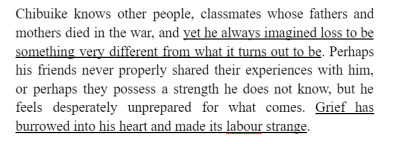
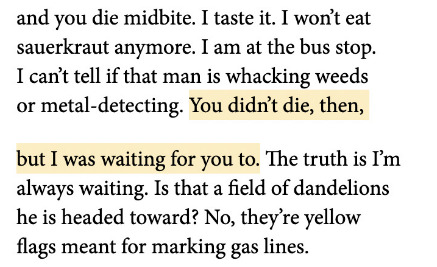



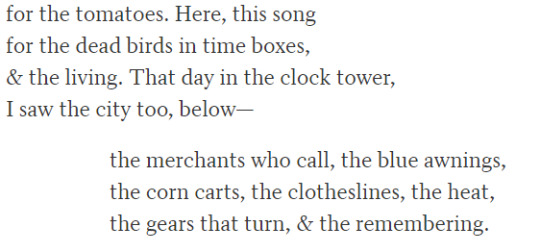

on loss and the mundane
Okechukwu Nzelu, here again now // Steven Espada Dawson, Elegy for Brian, My Brother Who Has Been Missing for Ten Years // my journal, june 2023 // Marie Howe, What the Living Do // Elisa Gonzalez, After My Brother’s Death, I Reflect on the Iliad // Zeina Hashem Beck, There, There, Grieving // Frank O’Hara, The Day Lady Died
8 notes
·
View notes
Note
omg 2 questions in row..
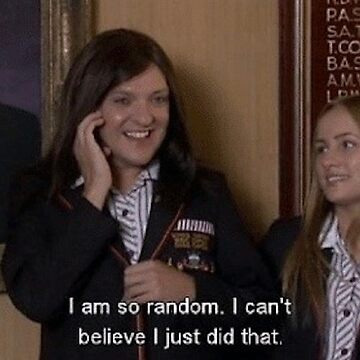
DECEMBER 2023 READS!! how'd you end the year!! did your reading fit the season/holiday/birthday vibes well? are you pleased with the scope of your reads for the overall year? and lastly, do you have any goals for this new year of reads, quantity - content - and/or author-wise? I'm all ears... 👂
so quirky of you! i only read 3 books in december and they weren't very christmassy at all, but i enjoyed all of them! lets get into the
december book wrap up
A Clash of Kings by George R. R Martin
i found my copy! also ended up rediscovering like 20 year old family pictures and i almost cried seeing myself and my great grandmother at my christening but that's unrelated! i love Stannis the Mannis and enjoyed reading this. i was spending most of the book in anticipation of Jaime's POV debut in the next one.
The Only Good Indians by Stephen Graham Jones
bit rogue of me to choose a horror read in December. took a while to find its feet but such exceptional character work to me i think the choices in perspective and tone were so interesting and did so much for the story that was told.
Here Again Now by Okechukwu Nzelu
i didn't go into this expecting it to be my final read of the year, and i don't think knowing what i know now of the book i'd hav chosen this. a little bit of a downer. a bit dragging in parts but i think that's my actual travel fatigue talking and also reading 3 quite verbose books back to back can get a bit draining when i probably do need to read something lighter.
2024 reading
same as you, i'm really seriously (sure) gonna try to get through my TBR. i'm at the point now where i can't buy anymore physical books until i get a new book storage situation sorted, and that likely won't happen until the summer. i am still hoping to give more time to nonfiction which is handy as i got Britney's memoir as a christmas present. continuing on with reading a diversity of genres, authors and stories. maybe this year i'll read some new books so that i can actually vote in at least one goodreads choice category
#djservo#book talk#oh and rereading! the thiefs journal in particular now i'm past the initial hurdle of adjusting to Genet's style i can engage more with the#subject. i just want to reread that in general tbh
5 notes
·
View notes
Photo

Cover Art | The Private Joys of Nnenna Maloney by Okechukwu Nzelu
How do you begin to find yourself when you only know half of who you are?
As Nnenna Maloney approaches womanhood she longs to connect with her Igbo-Nigerian culture. Her once close and tender relationship with her mother, Joanie, becomes strained as Nnenna begins to ask probing questions about her father, who Joanie refuses to discuss.
Nnenna is asking big questions of how to ‘be’ when she doesn’t know the whole of who she is. Meanwhile, Joanie wonders how to love when she has never truly been loved. Their lives are filled with a cast of characters asking similar questions about identity and belonging whilst grappling with the often hilarious encounters of everyday Manchester.
Release date | Oct 3, 2019
Goodreads
22 notes
·
View notes
Text

okechukwu nzelu here again now
kofi
#here again now#fragments#on love#on self#on identity#okechukwu nzelu#british lit#british literature#english lit#english literature
70 notes
·
View notes
Text

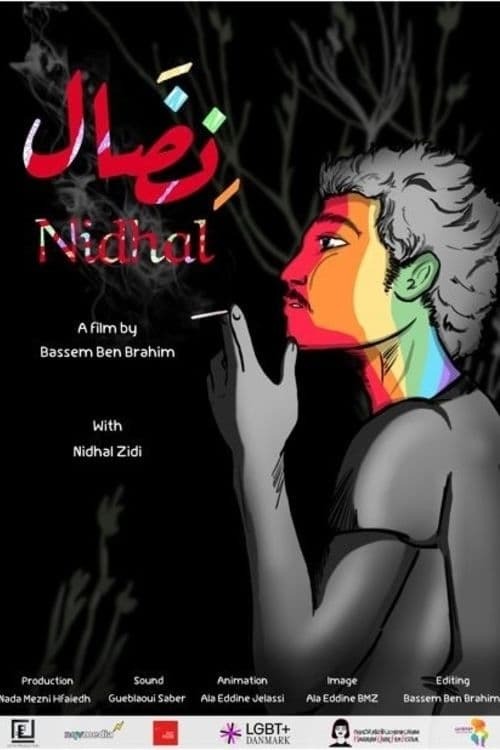



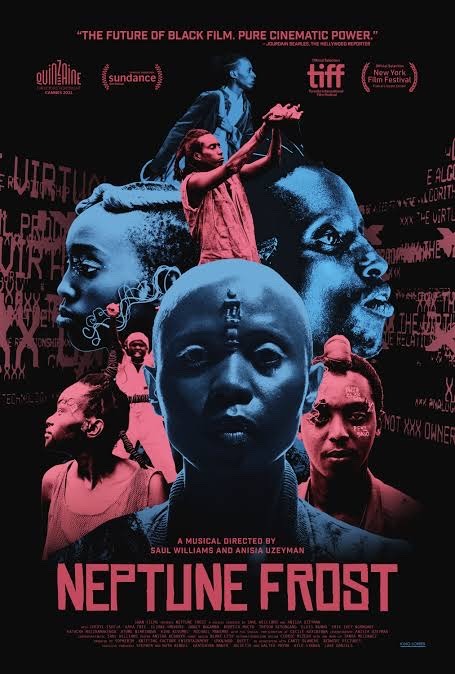
Recent African LGBTQ Content (as of July 2022)
#diriye osman#somalia#nidhal#tunisia#shall I compare you to a summer’s day#egypt#okechukwu nzelu#nigeria#edward enninful#ghana#neptune frost#rwanda#burundi#literature#filmography
135 notes
·
View notes
Text
5 questions with Andrew McMillan
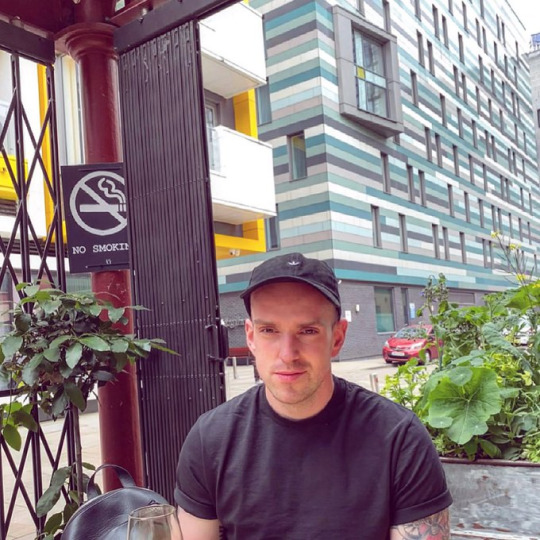
Why do you write?
On one level it’s simply that it’s how I make sense of the world; how I redeem certain things that I’m not particularly proud of, or just the way I find to live through certain things which might be happening at any given time. Beyond that I suppose there’s a high-minded idea that it might be ‘useful’ in that Sharon Olds-ian sense, for other people to see something they’ve also experienced articulated in a new way. On a very straightforward level, its because I love reading, and I think we begin by reading and then trying to emulate that. On a practical level, obviously I grew up around poetry, which is not to say that’s why I write (whatever your parents do becomes egregiously embarrassing for most of your teenage life) but it gave me a sense that a poet was a living tangible thing, it was something someone did, or could do. I suppose that’s not really why I write, but I think a lack of access to envisioning that one could literally be a poet is probably something which stops a lot of people who could write (beyond the obvious socio-economic factors)
I read that you recommend aspiring poets to read 100 poems a day and I can see from twitter (@AMcMillanPoet) that you are a voracious reader, do you keep up with your edict? Why is reading so important?
I think (hope) when I said that I was probably going for hyperbole, but I guess I do think reading is more important than writing. I certainly don’t keep up with my own edict, and I’ve been reading much less since my anxiety spiked during the pandemic, but I do try and read every day. I’ve never understood that idea of writing every day, it’s certainly not something I can do. But I think I try and do something connected to it every day, so some days that might just be sending an email, reading student work, reading a new collection, listening to a podcast, an audiobook- trying to immerse myself in that world as much as possible, whilst still leaving room for other things. I think reading, widely and variedly, reading things we don’t like, reading beyond our own narrowness of style, is how we keep shifting the thing we might call ‘voice’, but really our way of looking at the world, our own lens through which we view things. We all started writing because we loved reading, and I think its important to return to that.
Your debut collection ‘physical’ was hugely successful, winning the Guardian First Book Award and many other prizes, did this early success put any pressure on you for the 2nd and 3rd collections? Or did it fill you with confidence?
It was very early success (I was in my mid-twenties when physical came out) and it all happened very quickly, and was running parallel to some of the most difficult years of my personal life (which I write more about in pandemonium) so I’ve only started to get my head around everything that happened really. I guess, in relation to your question, it’s a little of both. With my second book I knew it would have a readership, I assumed at least a portion of the people who bought the first one would at least buy the second one whether they ended up liking it or not, and so there wasn’t the sense that there always is with a first collection of somehow throwing something into a void and waiting to see what happens. I also had a very practical outlook which was knowing that the ‘run’ that physical had in terms of what it was nominated for etc was a really once in a lifetime thing, I know that I’ll never have a book like that again, and that’s OK, after a first collection it becomes I think about building a life’s work, some of which will be quieter, some of which will maybe be louder. I don’t think you’re ever not scared, and certainly I never have confidence in the work particularly. When my second book came out someone said to me “I’ll buy this one, but I’ll buy the famous one as well”; I guess that’s just something I’ll carry around throughout my writing career, and I think I’m very lucky to have that. I also think that at some point it will just be over, these things are always very transient. I listened to a podcast with a comedian, and he just described this idea that the end of his career would be him turning up to a gig and nobody came, and he just goes home to his wife and says ‘well, that’s that then’. And I like that idea, at some point I won’t have any poems left, or I will but nobody will read them and then I can just come home and say to my boyfriend ‘well, that’s that then’, and put the kettle on.
Like some of your contemporaries (AK Blakemore, Sophie Robinson, Danez Smith, Rupi Kaur) you opt for lower case letters in your poetry, why?
It started out as a direct impersonation of some poets I’d read in an anthology called The Children of Albion, edited by the late Michael Horowitz; alongside that stylistic borrowing, I was writing very quiet, little personal poems which felt as though they were whispering, and so didn’t need capital letters. Once you remove capital letters it has knock on effects, visually, for other things like punctuation. And so it just developed slowly from there; I still wanted it to feel controlled, and so I have my own rules. Capital letters for proper nouns, three spaces for a comma, six for a full stop etc… I’ve never met anyone who speaks in ‘proper’ punctuation, I wanted something which felt intimate, something closer to breath.
I really like the ‘Swan’ sequence in your latest collection pandemonium, written after Matthew Bourne’s version of Swan Lake, it is always nice to read poetry inspired by other art forms. What are some recent cultural highlights for you?
Thank you. I’m still finding my way back out into the post-pandemic world. A couple of novels I’ve been lucky enough to read in proof that are coming out next year really blew me away, Okechukwu Nzelu’s Here Again Now and Ashley Hickson-Lovence’s Your Show. So look out for those. We went to see Nomadland in the cinema and I thought there were some achingly beautiful moments in it, the last few shots of the film in particular. I’ve been getting into Audiobooks too, anxiety has made it really hard for me to concentrate on physical novels; Heatwave, by Victor Jestin, translated by Sam Taylor, is a wonderful novella; kind of like The Tell-Tale Heart but everyone is sweaty and in speedos. Rumaan Ali’s Leave the World Behind is brilliant too. I also have very much enjoyed the quiz show The Wheel on BBC 1 , and hope it will return for a full series in the autumn.
_________________-
pandemonium is available from Jonathan Cape
2 notes
·
View notes
Text
Okechukwu Nzelu on Polari First Book Prize 2020 shortlist.
Okechukwu Nzelu on Polari First Book Prize 2020 shortlist.
Okechukwu Nzelu is on the Polari First Book Prize 2020 shortlist announced on July 31, 2020.
The Polari First Book Prize was established to celebrate new writing coming with a focus on LGBTIQ issues by writers born or based in the UK and Ireland by Paul Burton in 2011. It borrowed from the term “Polari” once used as part of the gay subculture in the past. Previous winners of the prize include…
View On WordPress
0 notes